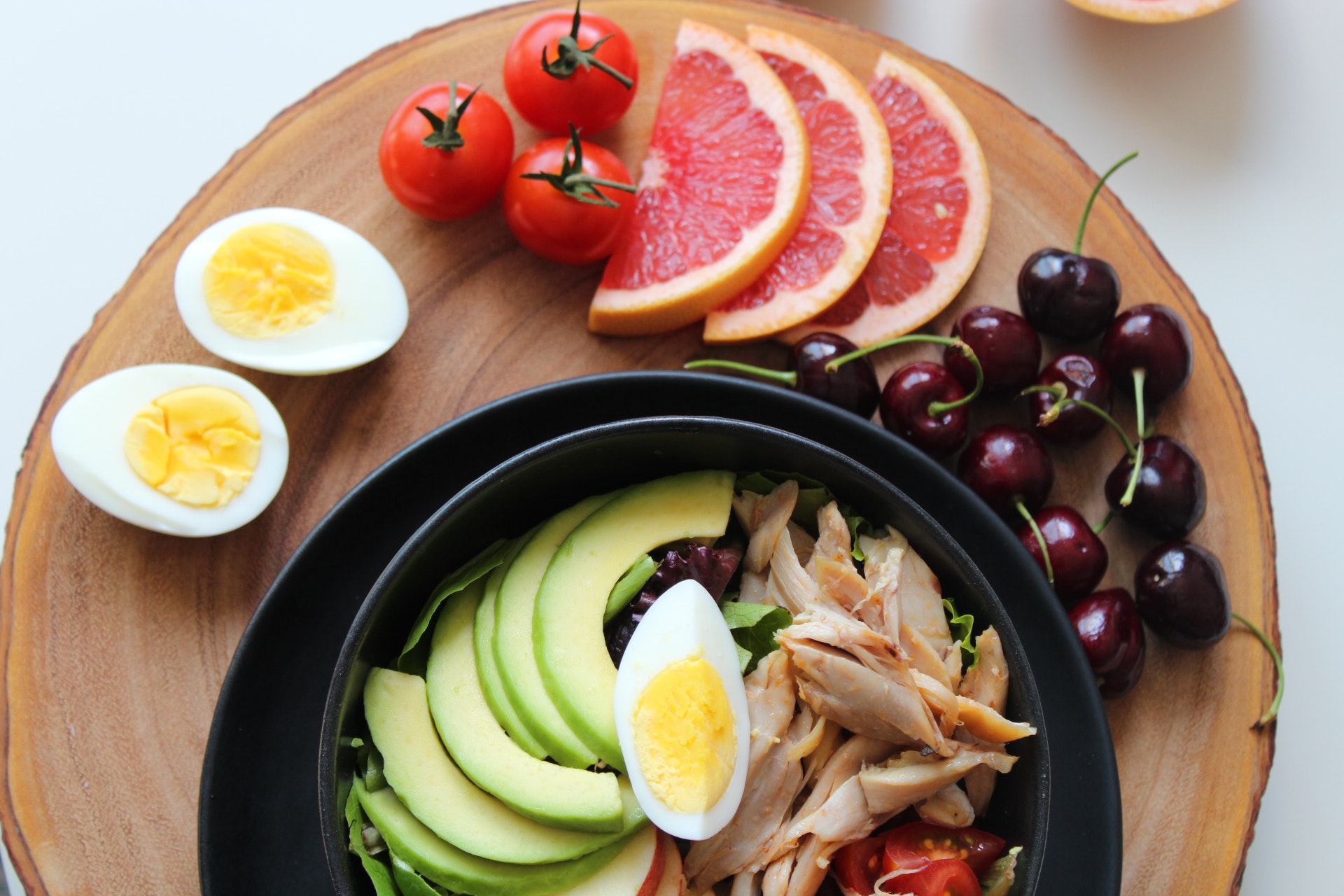

Featured
What To Eat Before Interval Training
Modified: January 2, 2024
Looking for the perfect pre-workout meal? Discover the featured foods to eat before interval training for maximum energy and performance.
Introduction
Welcome to the world of interval training! If you’re looking to amp up your workout routine and achieve maximum results in minimum time, interval training is the answer. This high-intensity exercise method involves alternating between short bursts of intense activity and brief periods of rest or lower intensity exercises. Not only does it challenge your body in new and exciting ways, but it also boosts your stamina, improves cardiovascular health, and helps you burn more calories in less time.
While the actual workout is crucial for achieving your fitness goals, the importance of pre-workout nutrition should not be overlooked. What you eat before your interval training session can greatly impact your performance, energy levels, and overall results. Proper fueling before exercise ensures that your body has the necessary nutrients to power through the intense intervals and recover effectively afterward. So, what should you eat before interval training? Let’s explore some of the best pre-workout foods to optimize your performance and enhance your training.
Benefits of Interval Training
Interval training offers a wide range of benefits that make it a popular choice for fitness enthusiasts. Whether you’re a seasoned athlete or just starting your fitness journey, incorporating interval training into your routine can supercharge your progress. Here are some key benefits of interval training:
- Increased calorie burn: Interval training is a highly efficient way to torch calories. The intense bursts of exercise followed by short rest periods keep your heart rate elevated, leading to a higher calorie burn during and even after your workout.
- Improved cardiovascular fitness: Interval training pushes your cardiovascular system to the limit, improving your heart’s overall efficiency. Over time, this leads to increased endurance and better cardiovascular health.
- Time-efficient: One of the biggest advantages of interval training is its time-saving nature. Since it combines short bursts of high-intensity exercise with rest periods, you can achieve the same or even better results in less time compared to traditional long-duration cardio workouts.
- Diverse workout options: Interval training is incredibly versatile. You can incorporate it into various activities such as running, cycling, swimming, or even bodyweight exercises like burpees or jump squats. This allows you to keep your workouts interesting and prevents boredom.
- Muscle building: Interval training not only helps burn fat but also builds lean muscle. The intense exercises target multiple muscle groups, stimulating muscle growth and improving overall strength.
These are just a few of the many benefits that interval training has to offer. It’s a highly effective and efficient way to improve your fitness level and reach your goals faster. Now, let’s dive into the next important aspect of effective interval training – pre-workout nutrition.
Importance of Pre-Workout Nutrition
When it comes to interval training, proper nutrition plays a vital role in optimizing your performance and maximizing your workout results. It’s essential to fuel your body with the right nutrients before exercising, especially if you’re embarking on a high-intensity workout like interval training.
Pre-workout nutrition provides your muscles with the energy they need to perform at their best, enhances endurance, reduces muscle fatigue, and boosts recovery. Additionally, it helps stabilize blood sugar levels, improves focus, and prevents post-workout muscle soreness.
Without adequate fuel, your body may struggle to meet the demands of intense exercise, which can lead to decreased performance, early fatigue, and even muscle breakdown. By prioritizing pre-workout nutrition, you can ensure that your body has the necessary energy and nutrients to power through your interval training session and achieve optimal results.
Keep in mind that the timing of your pre-workout meal is crucial. You want to consume your meal or snack around 30 minutes to 2 hours before starting your workout. This allows enough time for digestion, absorption, and utilization of nutrients by your muscles during exercise.
Now that we understand the importance of pre-workout nutrition, let’s explore what foods are best to consume before interval training to fuel your body for peak performance.
What to Eat Before Interval Training
Choosing the right foods before your interval training session is crucial for optimal performance, energy, and recovery. Here are some key nutrients to include in your pre-workout meal:
- High Carbohydrate Foods: Carbohydrates are the primary source of energy for intense exercise. Opt for complex carbohydrates such as whole grains, fruits, vegetables, and legumes. These provide a slow and steady release of energy, keeping you fueled throughout your workout.
- Lean Protein Sources: Protein helps repair and rebuild muscles after exercise. Include lean protein sources like chicken, fish, tofu, eggs, or Greek yogurt in your pre-workout meal. Protein also aids in muscle recovery and can enhance exercise performance.
- Healthy Fats: While carbohydrates provide quick energy, healthy fats help sustain it. Include sources like avocado, nuts, seeds, or olive oil in moderation. These fats provide essential nutrients and help keep you satiated during your workout.
- Hydration: Staying hydrated is essential for optimal performance during your interval training. Drink water throughout the day leading up to your workout and consider sipping on a sports drink or coconut water for electrolyte replenishment if you’ll be exercising for an extended period.
- Timing of the Meal: Ideally, consume your pre-workout meal or snack 1-2 hours before your interval training session. This allows for adequate digestion and absorption of nutrients, providing you with a steady source of energy during your workout.
Some pre-workout meal ideas include a whole grain wrap with turkey and veggies, a fruit smoothie with Greek yogurt and spinach, or a bowl of oatmeal topped with berries and almonds. Experiment with different options to find what works best for your body and preferences.
Remember, it’s essential to listen to your body and adjust your pre-workout nutrition based on your individual needs and sensitivities. What works for one person may not work for another. Emphasize consuming a balanced meal that includes carbohydrates, protein, and a healthy fat source to fuel your body effectively.
Now that you know what to eat before interval training, experiment with different food combinations and find what gives you the energy and performance boost you need for your workouts.
High Carbohydrate Foods
When it comes to pre-workout nutrition for interval training, high carbohydrate foods are essential for providing the energy your muscles need to perform at their best. Carbohydrates are converted into glucose, which is the primary fuel source for intense exercise.
Opt for complex carbohydrates, which offer a slow and steady release of energy, providing endurance throughout your workout. Some excellent sources of complex carbohydrates include:
- Whole grains: Foods like quinoa, brown rice, whole wheat bread, and oats are packed with fiber and nutrients, ensuring sustained energy during your interval training.
- Fruits: Bananas, apples, and berries are not only delicious but also rich in natural sugars and fiber. They provide quick energy and are easily digested.
- Vegetables: Leafy greens, sweet potatoes, and carrots are nutrient-dense carbohydrate sources that provide steady energy and essential vitamins and minerals.
- Legumes: Foods like lentils, chickpeas, and black beans are excellent sources of carbohydrates and protein, making them a perfect addition to your pre-workout meal.
It’s important to note that while carbohydrates are crucial, portion control is key. Consuming too many carbohydrates can leave you feeling heavy and sluggish during your workout. Aim to include a moderate serving of carbohydrates in your pre-workout meal, depending on your individual needs and intensity of exercise.
Experiment with different combinations and find what works best for your body. For example, you might try a whole grain toast topped with avocado and sliced tomatoes, or a bowl of mixed berries with Greek yogurt and a sprinkle of granola.
Remember to listen to your body and pay attention to how certain foods make you feel during your workout. Everyone’s digestion and tolerance to different carbohydrate sources may vary, so make adjustments as needed to find the optimal fuel for your interval training sessions.
Lean Protein Sources
Protein is an essential nutrient for muscle repair, growth, and recovery. Including lean protein sources in your pre-workout nutrition can aid in maximizing your interval training performance.
Here are some lean protein sources that you can incorporate into your pre-workout meal:
- Chicken breast: Skinless chicken breast is a lean protein source that is low in fat and high in muscle-building amino acids. It can be grilled, baked, or sautéed for a tasty and filling pre-workout option.
- Fish: Salmon, tuna, and cod are excellent sources of lean protein and are rich in omega-3 fatty acids, which have anti-inflammatory properties. They promote muscle recovery and reduce muscle soreness after intense exercise.
- Tofu: For those following a plant-based or vegetarian diet, tofu is a great option. It contains all essential amino acids and provides a good amount of protein. Marinate and stir-fry tofu for a flavorful and protein-packed pre-workout meal.
- Eggs: Boiled, scrambled, or made into an omelet, eggs are a versatile and protein-rich option. They are loaded with amino acids, vitamins, and minerals, making them a nutrient-dense choice for fueling your interval training.
- Greek yogurt: High in protein and low in fat, Greek yogurt is a convenient and delicious pre-workout snack. It can be paired with fruits, nuts, or a drizzle of honey for added flavor and nutritional benefits.
Including lean sources of protein in your pre-workout meal helps support muscle growth and repair, which can enhance your performance and recovery time during interval training. Aim to consume a moderate amount of protein, depending on your individual needs and goals.
Remember to balance your protein intake with the other macronutrients in your meal. Including carbohydrates and a small amount of healthy fats alongside protein will provide a well-rounded pre-workout meal that fuels your body for optimal performance and energy.
Experiment with different protein sources and meal combinations to find what works best for you. Whether you prefer a chicken and vegetable stir-fry, a salmon salad, or a protein-packed smoothie, incorporating lean protein into your pre-workout nutrition can make a significant difference in your interval training sessions.
Healthy Fats
While carbohydrates provide quick energy and proteins support muscle growth, healthy fats play an important role in your pre-workout nutrition for interval training. They provide a sustained source of energy and aid in nutrient absorption.
Here are some sources of healthy fats to include in your pre-workout meal:
- Avocado: Packed with monounsaturated fats, avocados provide a creamy texture and delicious flavor to any meal. They are also high in fiber, which helps promote satiety and provides a steady release of energy during your workout.
- Nuts and seeds: Almonds, walnuts, chia seeds, and flaxseeds are all excellent sources of healthy fats. They provide essential omega-3 fatty acids, which have anti-inflammatory properties and contribute to heart health.
- Olive oil: Drizzling olive oil over a salad or using it for cooking adds a dose of healthy fats to your pre-workout meal. Olive oil is rich in monounsaturated fats, which can help decrease inflammation and promote cardiovascular health.
- Nut butter: Peanut butter, almond butter, or cashew butter are tasty and convenient sources of healthy fats. Spread them on whole grain toast or include them in smoothies for a delicious pre-workout snack.
- Coconut: Coconut oil, milk, or flakes are versatile ingredients that provide medium-chain triglycerides (MCTs). MCTs are easily digested and can be utilized as a quick source of fuel during exercise.
Including a small amount of healthy fats in your pre-workout meal helps provide sustained energy and aids in nutrient absorption. Fat takes longer to digest compared to carbohydrates and protein, providing a steady release of energy during your interval training session.
However, it’s important to remember that moderation is key, as fats are more calorie-dense than carbohydrates and protein. Aim to include a small serving of healthy fats in your pre-workout meal to avoid feeling heavy or sluggish during exercise.
Experiment with different combinations of healthy fats in your meals, such as adding avocado slices to a chicken and vegetable wrap, sprinkling nuts and seeds onto a salad, or blending nut butter into a smoothie. Find what works best for you and helps fuel your body for optimal performance during interval training.
Hydration
Staying hydrated is crucial for optimal performance and overall well-being, especially when it comes to interval training. Adequate hydration helps maintain fluid balance, regulate body temperature, and transport nutrients to your muscles.
Here are some key points to keep in mind to ensure proper hydration before your interval training:
- Drink water throughout the day leading up to your workout. Aim for at least 8-12 cups (64-96 ounces) of water daily, but adjust based on individual needs, climate, and activity level.
- Consider sipping on a sports drink or coconut water if you’ll be engaging in prolonged and intense exercise. These beverages provide electrolytes like sodium, potassium, and magnesium, which are lost through sweat and can help replenish and maintain electrolyte balance.
- Monitor the color of your urine as a general indicator of hydration. Light yellow or clear urine usually indicates proper hydration, while dark yellow or amber-colored urine may indicate dehydration.
- Remember that thirst is not always an accurate indicator of hydration. By the time you feel thirsty, you may already be mildly dehydrated. Aim to drink water consistently throughout the day, rather than just when you feel thirsty.
Proper hydration before your interval training session helps prevent dehydration, which can lead to decreased performance, fatigue, and muscle cramps. It also promotes optimal cardiovascular function and efficient nutrient delivery to your muscles.
Forming a habit of staying hydrated throughout the day, not just before your workout, is crucial for overall health and performance. Carry a water bottle with you and sip on it regularly, even during non-exercise periods.
Be mindful of the conditions you’re exercising in. If you’re training in a hot and humid environment, or if your interval training session is particularly intense, you may need to increase your fluid intake and consider consuming electrolyte-rich beverages to prevent dehydration.
Remember, maintaining proper hydration is a key component of an effective pre-workout routine for interval training. Prioritize drinking enough water and replenishing electrolytes to support your performance and overall well-being.
Timing of the Meal
The timing of your pre-workout meal is an important consideration when it comes to fueling your body for interval training. Eating too close to your workout can leave you feeling heavy and uncomfortable, while consuming your meal too far in advance may result in a lack of energy during your exercise session.
Here are some guidelines to help you determine the optimal timing of your pre-workout meal:
- Aim to consume your pre-workout meal or snack about 1-2 hours before your interval training session. This timeframe allows for proper digestion and absorption of nutrients, providing you with a steady source of energy during your workout.
- If you prefer a larger meal, consume it closer to the 2-hour mark. This allows ample time for the digestion process to take place before you start exercising. A larger meal might include a combination of carbohydrates, lean protein, and healthy fats.
- If you prefer a smaller snack, aim to eat it about 30 minutes to an hour before your interval training. This timeframe is ideal for a light snack that provides quick energy, such as a piece of fruit or a small protein shake.
- Consider the individual factors that may affect digestion and energy levels, such as your personal tolerance, meal size, and intensity of your workout. Experiment with different timings to find what works best for your body and enables you to perform at your best.
Remember to listen to your body and pay attention to how you feel during your interval training sessions. If you find that eating a larger meal closer to your workout makes you feel sluggish, try eating a smaller snack a bit earlier. Likewise, if you feel hungry or lacking energy during your workout, adjust your pre-workout meal timing accordingly.
Keep in mind that it’s essential to fuel your body consistently throughout the day, not just before your workout. Optimal nutrition and hydration should be prioritized throughout your daily routine to support overall health and performance.
By finding the right timing for your pre-workout meal, you can ensure that your body has the necessary nutrients and energy to power through your interval training with optimal performance and endurance.
Conclusion
Optimizing your pre-workout nutrition for interval training can significantly impact your performance, energy levels, and overall results. By focusing on the right combination of nutrients, you can fuel your body for peak performance and enhance your training sessions.
Start by including high carbohydrate foods in your pre-workout meal, such as whole grains, fruits, vegetables, and legumes. These complex carbohydrates provide a steady release of energy, keeping you fueled throughout your workout.
Lean protein sources are essential for muscle repair and recovery. Include chicken, fish, tofu, eggs, or Greek yogurt in your pre-workout meal to support muscle growth and enhance exercise performance.
Healthy fats, like those found in avocados, nuts, seeds, and olive oil, provide sustained energy and aid in nutrient absorption. Including a small portion of healthy fats in your pre-workout meal can help sustain energy levels during your interval training.
Hydration should not be overlooked, as it plays a crucial role in performance and overall well-being. Make sure to stay adequately hydrated by consuming water throughout the day and considering sports drinks or coconut water for electrolyte replenishment during intense exercise.
Lastly, pay attention to the timing of your pre-workout meal. Aim to eat your meal or snack about 1-2 hours before your interval training session to allow for proper digestion and absorption. Adjust the timing based on your individual needs, preferences, and tolerance to different meal sizes.
Incorporating these guidelines into your pre-workout routine can help you power through your interval training sessions with maximum energy and efficiency. Remember to listen to your body, experiment with different food combinations, and find what works best for you.
Now that you have a better understanding of the importance of pre-workout nutrition for interval training, it’s time to fuel up, hit the gym, and unleash your full potential!









